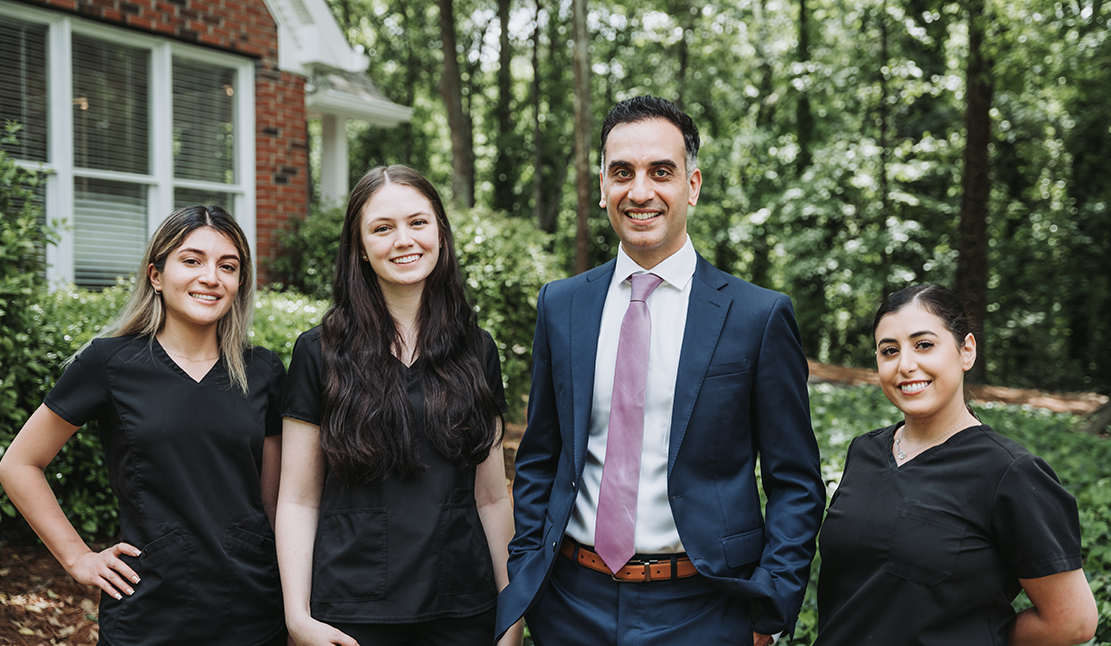A root canal is a treatment commonly used in dentistry to repair and save a tooth that is badly decayed or has become infected. Root canals are performed when the tooth pulp becomes infected or inflamed. The dental pulp is the soft tissue located inside the tooth that contains nerves, blood vessels, and connective tissue. During a root canal, the dentist removes the decayed tissue and fills the tooth with a rubber-like material.
Don't let tooth pain disrupt your life—trust Park Creek Dental Care in Woodstock and Canton, GA, for expert root canal treatment. Call us today to schedule your appointment and experience relief from dental discomfort.
If you are experiencing any of these symptoms, contact our dentist right away:
When you don’t brush and floss your teeth properly, it results in bacteria accumulation on your teeth. The bacteria then feed on the sugars in your mouth and produce acid that slowly eats away at your teeth’s enamel, leading to tooth decay. If not treated on time, it can lead to a root canal infection.
Gum disease begins when plaque and tartar accumulate within your gum line and between your teeth and gums. This infection can lead to severe gum disease, wherein the gum tissue starts to recede and fall off due to its exposure to bacteria. When the infection reaches deeper layers of your gum tissue, it can affect your jawbone as well. If not treated on time, root canal infection can be one of its worst complications.
The procedure for root canal treatment begins with numbing your tooth with local anesthesia so that you do not experience pain or discomfort during the whole process. Next, a small hole is drilled into your tooth to access the nerve and decay inside it. After identifying it, we will remove it completely using special files. If a large amount of decay has accumulated in the nerve cavity, we will use antibiotics to prevent further infection.
After removing all the decay and cleaning out the cavity completely, we will fill it with a medicated material. Then, we will place a small amount of antibiotic powder in the hole created after preparing the tooth for filling. After ensuring that there’s no further infection in your tooth during this procedure, we will restore it using a crown so that it does not break or fracture easily when you bite and chew food.
After completing root canal treatment on your affected tooth, you should brush and floss regularly and also visit us for regular checkups and cleaning appointments to ensure that no further infection develops in your restored tooth. If any sign of infection is noticed on your restored tooth, please do not hesitate to consult us right away!
Restore your smile's health and function with root canal treatment at Park Creek Dental Care. Call us at our Woodstock or Canton, GA, locations to schedule your appointment and take the first step towards a pain-free, healthy smile.
To learn more about our dental services or schedule a consultation, call Dentist Woodstock, GA at (470) 601-7888 or visit Park Creek Dental Care at 8080 Hickory Flat Hwy, Woodstock, GA 30188.

